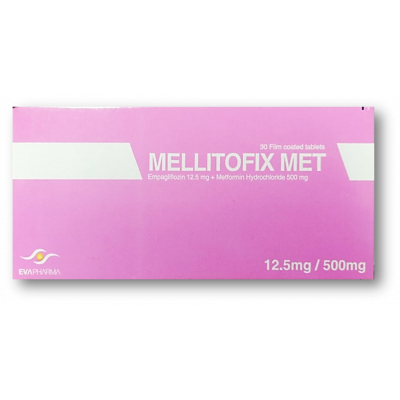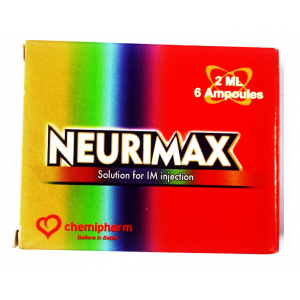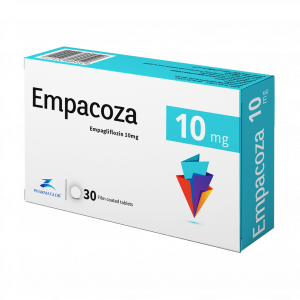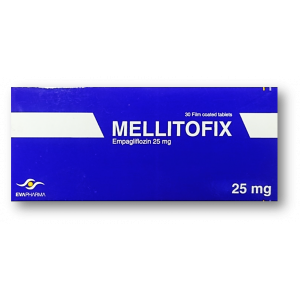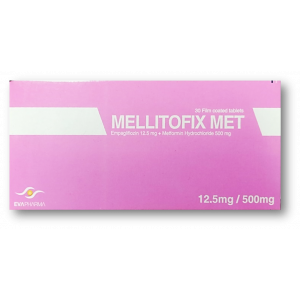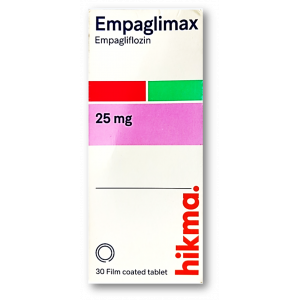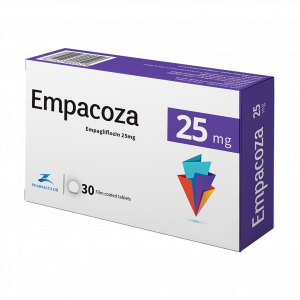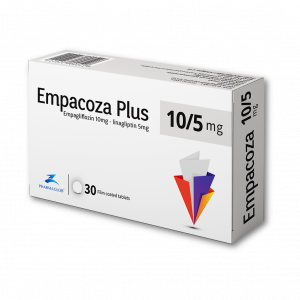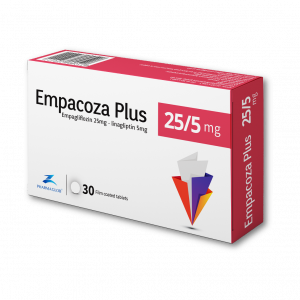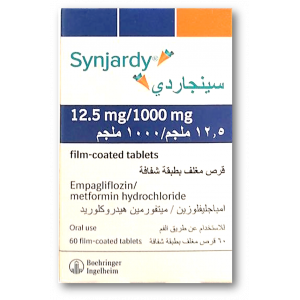- Anti-hestaminic & Respiratory Drugs (21)
- Anti-inflammatory Drugs (181) +-
- Baby & Mom (1314) +-
- Baby & Mom > Bath, skin & Hair > Skin Care > wibes (53)
- Beauty (2723) +-
- Beauty > Skin Care > whitening (273)
- Chemotherapy & Immune Response (659) +-
- Chemotherapy & Immune Response > ANTI-FUNGAL (6)
- Chemotherapy & Immune Response > Chemotherapeutic Agents > Hormone Antagonists >Enzyme Inhibitors (235)
- CIRCULATORY DISTURBANCE AGENTS (23)
- Diet & Fitness Products (248) +-
- DRUG AFFECTING CENTRAL NERVOUS SYSTEM (183)
- Drugs affecting CNS >Anti- epileptic (78)
- HEMATOLOGY (12)
-
Medical Supplies (468)
+-
- Chemicals & Disinfectants (19)
- Dental Supplies (27)
- Devices & Instruments (8)
- Diabetic Supplies (107)
- General Medical Supplies (21)
- I.V & Medical Solution (0)
- Intensive Care Unit & Anesthesia Supplies (0)
- Kindney Unit Supplies (12)
- Lab Supplies (1)
- Miscellaneous (21)
- Neonatal Unit Supplies (0)
- Operation Room Supplies (2)
- Sanitary (5)
- Sterilization Supplies (0)
- Surgical Sutures (4)
- Syringes (3)
-
Medicines & Health (2535)
+-
- Allergy & Sinus (93)
- Children's Health Care (52)
- Cough, Cold & Flu (297)
- Digestive Health & Nausea (218)
- Ear, Nose & Throat Care (174)
- Eye Care (117)
- Feminine Care (315)
- Foot Care (4)
- Orthopaedic Appliances (0)
- Pain Relief & Management (227)
- Pill Organizer (2)
- Skin Treatments (734)
- Sleep & Snoring Aids (0)
- Support & Braces (6)
- Medicines & health > Gout releif (42)
- Natural & Organic Products (82) +-
- OTC > Analgesics > Anti-inflammatory Drugs (43)
-
Personal Care (3044)
+-
- Bath & Body (256)
- Deodorant & Anti-perspirants (179)
- Ear, Nose & Throat Care (169)
- Eye Care (123)
- Feminine Care (362)
- Foot Care (12)
- Hair Care (388)
- Home Tests & Monitorings (14)
- Incontinence (7)
- Lip Care (20)
- Massage & Relaxation (18)
- Natural & Organic Personal Care (7)
- Oral Care (81)
- Pregnancy & Fertility (60)
- Shaving & Grooming (67)
- Sun Care (67)
- Prescribtion drugs > cardiovascular system > Hypertention drugs (334) +-
-
Prescription Drugs (2988)
+-
- Analgesics (180)
- Cardiovascular System (347)
- Drugs Affecting Musculoskeletal System (62)
- Drugs Used In Infections (53)
- Ear & Nose Drugs (2)
- Endocrine System (157)
- Gastrointestinal Tract (232)
- Gastrointestinal Tract (214)
- GYNECOLOGY (2)
- Miscellaneous (6)
- NEPHROLOGY > URINARY SYSTEM > RENAL DISORDERS > URINARY TRACT DISORDERS (24)
- NEUROLOGY (210)
- Nutrients & Blood Electrolytes (2)
- prescription drugs > cardiovascular system >Anti-hypertensive drugs (78)
- Prescription Drugs > Gastrointestinal Tract > Hepatology > Liver treatment (57)
- Respiratory System (137)
- SKIN > NAILS > HAIR > TOPICAL PREPARATIONS (42)
- Vaccines (1)
- Sexual Wellness (258) +-
- strong anti-emetic & adjuvent used with anti-neoplastic (0)
- Vitamins & Minerals Supplements (1134) +-
Ex Tax: 194EGP
Example
You can return the product within 14 days of purchase.
ReturnsYou can return the product within 14 days of purchase.

US Brand Name
Synjardy
Synjardy XR
Descriptions
Empagliflozin and metformin combination is used with proper diet and exercise to treat high blood sugar levels caused by type 2 diabetes. It is also used to lower the risk of cardiovascular death in patients with type 2 diabetes and heart or blood vessel disease. This medicine is also used to lower the risk of cardiovascular death and hospitalization in patients with heart failure, when the heart cannot pump enough blood to the rest of the body.
Empagliflozin works in the kidneys to prevent absorption of glucose (blood sugar). This helps lower the blood sugar level. Metformin reduces the absorption of sugar from the stomach, reduces the release of stored sugar from the liver, and helps your body use sugar better. It does not help patients who have insulin-dependent or type 1 diabetes. Type 1 diabetic patients must use insulin injections.
This medicine is available only with your doctor's prescription.
This product is available in the following dosage forms:
- Tablet
- Tablet, Extended Release
Before Using
In deciding to use a medicine, the risks of taking the medicine must be weighed against the good it will do. This is a decision you and your doctor will make. For this medicine, the following should be considered:
Allergies:
Tell your doctor if you have ever had any unusual or allergic reaction to this medicine or any other medicines. Also tell your health care professional if you have any other types of allergies, such as to foods, dyes, preservatives, or animals. For non-prescription products, read the label or package ingredients carefully.
Pediatric:
Appropriate studies have not been performed on the relationship of age to the effects of Synjardy® tablets in children younger than 10 years of age and Synjardy® XR extended-release tablets in children. Safety and efficacy have not been established.
Geriatric:
Appropriate studies performed to date have not demonstrated geriatric-specific problems that would limit the usefulness of empagliflozin and metformin combination in the elderly. However, elderly patients are more likely to have kidney problems, which may require caution and an adjustment in the dose for patients receiving empagliflozin and metformin combination.
Breastfeeding:
Studies in women breastfeeding have demonstrated harmful infant effects. An alternative to this medication should be prescribed or you should stop breastfeeding while using this medicine.
Drug Interactions:
Although certain medicines should not be used together at all, in other cases two different medicines may be used together even if an interaction might occur. In these cases, your doctor may want to change the dose, or other precautions may be necessary. When you are taking this medicine, it is especially important that your healthcare professional know if you are taking any of the medicines listed below. The following interactions have been selected on the basis of their potential significance and are not necessarily all-inclusive.
Using this medicine with any of the following medicines is usually not recommended, but may be required in some cases. If both medicines are prescribed together, your doctor may change the dose or how often you use one or both of the medicines.
- Abiraterone Acetate
- Acarbose
- Acetazolamide
- Alogliptin
- Aspirin
- Bexagliflozin
- Bictegravir
- Brinzolamide
- Bupropion
- Capmatinib
- Chloroquine
- Chlorothiazide
- Chlorpropamide
- Chlorthalidone
- Cimetidine
- Ciprofloxacin
- Dasabuvir
- Delafloxacin
- Diatrizoate
- Dichlorphenamide
- Dofetilide
- Dolutegravir
- Dorzolamide
- Enoxacin
- Ethiodized Oil
- Fedratinib
- Fexinidazole
- Furosemide
- Gatifloxacin
- Gemifloxacin
- Glimepiride
- Glipizide
- Glyburide
- Grepafloxacin
- Hydrochlorothiazide
- Hydroflumethiazide
- Hydroxychloroquine
- Indapamide
- Insulin
- Insulin Aspart, Recombinant
- Insulin Bovine
- Insulin Degludec
- Insulin Detemir
- Insulin Glargine, Recombinant
- Insulin Glulisine
- Insulin Lispro, Recombinant
- Iodipamide
- Iodixanol
- Iohexol
- Iopamidol
- Iopanoic Acid
- Iopromide
- Iothalamate
- Iotrolan
- Ioversol
- Ioxaglate
- Ipodate
- Isavuconazole
- Lanreotide Acetate
- Levofloxacin
- Levoketoconazole
- Liraglutide
- Lithium
- Lomefloxacin
- Mavorixafor
- Methazolamide
- Metolazone
- Metrizamide
- Moxifloxacin
- Nateglinide
- Norfloxacin
- Octreotide Acetate
- Ofloxacin
- Ombitasvir
- Paritaprevir
- Pasireotide Diaspartate
- Pioglitazone
- Polythiazide
- Pramlintide
- Ranolazine
- Repaglinide
- Semaglutide
- Sitagliptin
- Somatrogon-ghla
- Sotagliflozin
- Sparfloxacin
- Tafenoquine
- Thioctic Acid
- Tolazamide
- Tolbutamide
- Topiramate
- Triamterene
- Trimethoprim
- Trovafloxacin
- Vandetanib
- Zonisamide
Using this medicine with any of the following medicines may cause an increased risk of certain side effects, but using both drugs may be the best treatment for you. If both medicines are prescribed together, your doctor may change the dose or how often you use one or both of the medicines.
- Acebutolol
- Atenolol
- Betaxolol
- Bisoprolol
- Bitter Melon
- Carteolol
- Carvedilol
- Celiprolol
- Colesevelam
- Esmolol
- Fenugreek
- Glecaprevir
- Glucomannan
- Goldenseal
- Guar Gum
- Hydrastis
- Isocarboxazid
- Labetalol
- Levobunolol
- Linezolid
- Methylene Blue
- Metipranolol
- Metoprolol
- Nadolol
- Nebivolol
- Oxprenolol
- Ozanimod
- Patiromer
- Penbutolol
- Phenelzine
- Pibrentasvir
- Pindolol
- Practolol
- Procarbazine
- Propranolol
- Psyllium
- Rasagiline
- Rifampin
- Safinamide
- Selegiline
- Sotalol
- Timolol
- Tirzepatide
- Tranylcypromine
- Verapamil
Other Interactions:
Certain medicines should not be used at or around the time of eating food or eating certain types of food since interactions may occur. Using alcohol or tobacco with certain medicines may also cause interactions to occur. The following interactions have been selected on the basis of their potential significance and are not necessarily all-inclusive.
Other Medical Problems:
The presence of other medical problems may affect the use of this medicine. Make sure you tell your doctor if you have any other medical problems, especially:
- Alcohol abuse, history of or
- Cardiovascular collapse (shock) or
- Congestive heart failure or
- Heart attack, acute or
- Hypovolemia (low blood volume) or
- Pancreatic insulin deficiency (eg, pancreatitis, pancreatic surgery), history of or
- Poorly nourished condition or
- Sepsis (severe infection) or
- Weakened physical condition—Use with caution. May cause side effects to become worse.
- Anemia (low red blood cells) or
- Dehydration or
- Genital yeast (fungus) infection (eg, balanitis, balanoposthitis, vulvovaginitis), history of or
- Hypotension (low blood pressure) or
- Kidney disease or
- Urinary tract infections (eg, pyelonephritis, urosepsis), history of or
- Vitamin B12 deficiency—Use with caution. May make these conditions worse.
- Blood vessel disease (eg, peripheral artery disease) in the leg, history of or
- Diabetic foot infection (eg, osteomyelitis), sores, or ulcers, history of—May increase the risk of leg amputations.
- Diabetic ketoacidosis (high ketones and acid in the blood) or
- Kidney disease, severe (eg, patients receiving dialysis) or
- Liver disease or
- Metabolic acidosis (acid in the blood) or
- Type I diabetes—Should not be used in patients with these conditions.
- Fever or
- Infection or
- Surgery or
- Trauma—Use with caution. These conditions may cause problems with blood sugar control.
Proper Use
Take this medicine only as directed by your doctor. Do not use more of it, do not use it more often, and do not use it for a longer time than your doctor ordered. Do not change your dose unless directed by your doctor.
Carefully follow the special meal plan your doctor gave you. This is the most important part of controlling your diabetes, and will help the medicine work properly. Exercise regularly and test for sugar in your blood or urine as directed.
This medicine should come with a Medication Guide. Read and follow these instructions carefully. Ask your doctor if you have any questions.
This medicine should be taken with meals to help reduce unwanted stomach effects that may occur during the first few weeks.
Swallow the extended-release tablet whole. Do not crush, break, or chew it.
A part of the extended-release tablet may pass into your stool. Talk to your doctor if you see tablet pieces in your stool.
Tell your doctor if you are on a low-salt or sodium diet.
Dosing:
The dose of this medicine will be different for different patients. Follow your doctor's orders or the directions on the label. The following information includes only the average doses of this medicine. If your dose is different, do not change it unless your doctor tells you to do so.
The amount of medicine that you take depends on the strength of the medicine. Also, the number of doses you take each day, the time allowed between doses, and the length of time you take the medicine depend on the medical problem for which you are using the medicine.
For type 2 diabetes, to lower risk of cardiovascular death in patients with type 2 diabetes and heart disease, and to lower risk of cardiovascular death and hospitalization in patients with heart failure:
*For oral dosage form (extended-release tablets):
- Adults—At first, 1 or 2 tablets a day with food in the morning. Your doctor may increase your dose as needed and tolerated. However, the dose is usually not more than 25 mg of empagliflozin and 2000 mg of metformin per day.
- Children—Use and dose must be determined by your doctor.
*For oral dosage form (tablets):
- Adults and children 10 years of age and older—At first, 1 tablet 2 times a day with food. Your doctor may increase your dose as needed and tolerated. However, the dose is usually not more than 25 milligrams (mg) of empagliflozin and 2000 mg of metformin per day.
- Children younger than 10 years of age—Use and dose must be determined by your doctor.
Missed Dose:
If you miss a dose of this medicine, take it as soon as possible. However, if it is almost time for your next dose, skip the missed dose and go back to your regular dosing schedule. Do not double doses.
Storage:
Store the medicine in a closed container at room temperature, away from heat, moisture, and direct light. Keep from freezing.
Keep out of the reach of children.
Do not keep outdated medicine or medicine no longer needed.
Ask your healthcare professional how you should dispose of any medicine you do not use.
Precautions
It is very important that your doctor check your progress at regular visits, especially during the first few weeks that you take this medicine. Blood and urine tests may be needed to check for unwanted effects.
Tell your doctor if you are pregnant or planning to become pregnant. It is not safe to take this medicine during the second and third trimester of pregnancy. It could harm an unborn baby. This medicine may cause some women who do not have regular monthly periods to ovulate. This can increase the chance of pregnancy if you are sexually active. If you are a woman of childbearing potential, you should discuss birth control options with your doctor.
Under certain conditions, too much metformin can cause a serious condition called lactic acidosis. Lactic acidosis usually occurs when other serious health problems are present, such as a heart attack or kidney failure. The symptoms of lactic acidosis include: stomach discomfort, decreased appetite, diarrhea, fast or shallow breathing, a general feeling of discomfort, muscle pain or cramping, and unusual sleepiness, tiredness, or weakness. If you have more than one of these symptoms together, you should get immediate emergency medical help.
Dizziness, lightheadedness, or fainting may occur with this medicine. This is more common if you have kidney disease, low blood pressure, or if you are taking a diuretic (water pill). Taking plenty of fluids each day may help. Drink plenty of water during exercise or in hot weather. Check with your doctor if you have severe nausea, vomiting, or diarrhea that does not stop. This may cause you to lose too much water.
Ketoacidosis (high ketones and acid in the blood) may occur while you are using this medicine. This can be life-threatening and requires immediate medical attention. Your doctor may give you insulin, fluid, and carbohydrate replacement to treat this condition. Tell your doctor right away if you have nausea, vomiting, trouble breathing, increased thirst or urination.
Tell your doctor if you have bloody urine, decrease in how much or how often you urinate, painful or difficult urination, lower back or side pain, fever, chills, or swelling of the face, finger, or lower legs. These may be symptoms of a serious kidney problem.
This medicine may cause serious allergic reactions, including angioedema, which can be life-threatening and require medical attention. Call your doctor right away if you have large, hive-like swelling on the face, eyelids, lips, tongue, throat, hands, legs, feet, or sex organs while you are using this medicine.
Make sure any doctor or dentist who treats you knows that you are using this medicine. You may need to stop using this medicine at least 3 days before having major surgery, other procedures that require fasting, or diagnostic tests, especially tests that use a contrast dye. This medicine may also affect the results of certain medical tests (eg, urine glucose tests may not be accurate).
This medicine may cause hypoglycemia (low blood sugar). This is more common when this medicine is taken together with other diabetes medicines (eg, insulin, glipizide, or glyburide). The symptoms of low blood sugar must be treated before they cause you to pass out. People feel different symptoms with low blood sugar. It is important that you learn which symptoms you usually have so you can treat it quickly. Some symptoms of low blood sugar include: behavior changes that are similar to being drunk, blurred vision, cold sweats, confusion, cool, pale skin, difficulty with thinking, drowsiness, excessive hunger, a fast heartbeat, headaches that continue, nausea, shakiness, slurred speech, or unusual tiredness or weakness. Talk to your doctor about how to treat low blood sugar.
Hyperglycemia (high blood sugar) may occur if you do not take enough or skip a dose of your diabetes medicine, overeat or do not follow your diet plan, have a fever or infection, or do not exercise as much as usual. High blood sugar can be very serious and must be treated right away. It is important that you learn which symptoms you have in order to treat it quickly. Talk to your doctor about the best way to treat high blood sugar.
This medicine may cause vaginal yeast infections in women and yeast infections of the penis in men. This is more common in patients who have a history of genital yeast infections or in men who are not circumcised. Women may have a vaginal discharge, itching, or odor. Men may have redness, itching, swelling, or pain around the penis, or a discharge with a strong odor from the penis. Check with your doctor right away if you have any of these symptoms.
This medicine may increase your risk of having urinary tract infections, including pyelonephritis or urosepsis. Check with your doctor right away if you have bladder pain, bloody or cloudy urine, difficult, burning, or painful urination, or lower back or side pain.
This medicine may cause a rare but serious bacterial infection, called necrotizing fasciitis of the perineum or Fournier's gangrene, which can cause damage to the tissue under the skin in the area between and around the anus and genitals (perineum). Fournier's gangrene may lead to hospitalization, multiple surgeries, or death. Check with your doctor right away if you have fever, unusual tiredness or weakness, or pain, tenderness, redness, or swelling of the area between and around your anus and genitals.
This medicine may increase your risk of having lower leg, foot, or toe amputation. Check with your doctor right away if you have pain, tenderness, sores or ulcers, or infections on your leg or foot.
Limit the amount of alcohol you drink while you are using this medicine. Heavy alcohol use can increase your chances of serious side effects.
There may be a time when you need emergency help for a problem caused by your diabetes. You need to be prepared for these emergencies. It is a good idea to wear a medical identification (ID) bracelet or neck chain at all times. Also, carry an ID card in your wallet or purse that says you have diabetes with a list of all your medicines.
Do not take other medicines unless they have been discussed with your doctor. This includes prescription or nonprescription (over-the-counter [OTC]) medicines and herbal or vitamin supplements.
Side Effects
Along with its needed effects, a medicine may cause some unwanted effects. Although not all of these side effects may occur, if they do occur they may need medical attention.
Check with your doctor immediately if any of the following side effects occur:
More common
- Bladder pain
- bloody or cloudy urine
- blurred vision
- chills
- confusion
- cool, pale skin
- decreased appetite
- difficult, burning, or painful urination
- discouragement
- dizziness
- fast heartbeat
- fast, shallow breathing
- feeling sad or empty
- frequent urge to urinate
- general feeling of discomfort
- headache
- increased hunger
- irritability
- lack of appetite
- loss of consciousness
- loss of interest or pleasure
- lower back or side pain
- muscle pain or cramping
- nausea
- nightmares
- seizures
- shakiness
- sleepiness
- slurred speech
- stomach discomfort
- tiredness
- trouble concentrating
- trouble sleeping
- unusual tiredness or weakness
Less common
- Bad-smelling discharge from the penis
- itching of the vagina or genitals
- itching, stinging, or redness of the vaginal area
- redness, itching, swelling, or pain of the penis
- thick, white vaginal discharge with mild or no odor
Incidence not known
- Dark urine
- decreased frequency or amount of urine
- dizziness, faintness, or lightheadedness when getting up suddenly from a lying or sitting position
- dry mouth
- fever
- flushed, dry skin
- fruit-like breath odor
- increased thirst
- itching, skin rash
- large, hive-like swelling on the face, eyelids, lips, tongue, throat, hands, legs, feet, or genitals
- light-colored stools
- pain, tenderness, redness, or swelling of the area between the anus and genitals
- redness of the skin
- stomach pain, continuing
- unexplained weight loss
- vomiting
- weight gain
- yellow eyes or skin
Some side effects may occur that usually do not need medical attention. These side effects may go away during treatment as your body adjusts to the medicine. Also, your health care professional may be able to tell you about ways to prevent or reduce some of these side effects. Check with your health care professional if any of the following side effects continue or are bothersome or if you have any questions about them:
More common
- Bloated or feeling of fullness
- diarrhea
- excess air or gas in stomach or bowels
- indigestion
- passing gas
- stomach discomfort
Other side effects not listed may also occur in some patients. If you notice any other effects, check with your healthcare professional.
Call your doctor for medical advice about side effects.
Write a review
Your Name:Your Review: Note: HTML is not translated!
Rating: Bad Good
Enter the code in the box below:

